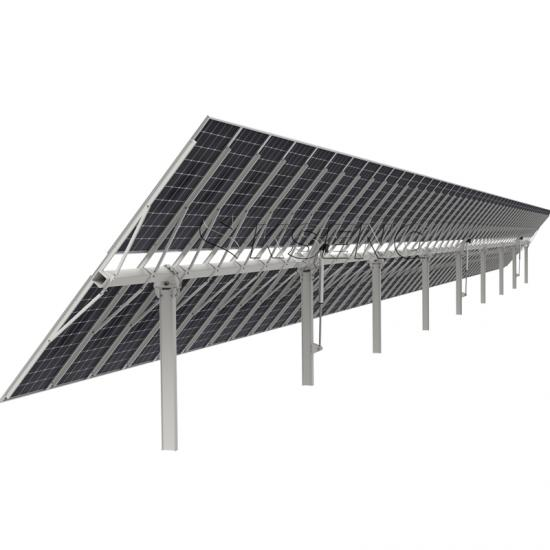What are the environmental benefits of solar tracking systems?
Sep 11, 2025
Solar tracking systems, such as single axis solar tracking systems and single post solar tracking systems, offer significant environmental benefits by enhancing the efficiency and sustainability of solar energy production. These systems dynamically adjust the position of solar panels to follow the sun's movement, maximizing sunlight capture and energy output.
 Reduced Carbon Footprint
By generating more electricity from solar power, tracking systems reduce the need for fossil fuels. This leads to lower greenhouse gas emissions and a smaller carbon footprint. The enhanced efficiency means that more energy is produced without increasing the surface area of solar farms, making solar power a more sustainable energy source.
Enhanced Renewable Energy Integration
Solar energy tracking systems play a crucial role in supporting global clean energy goals. By increasing energy production and efficiency, they help meet renewable energy targets and reduce reliance on traditional energy sources. This is particularly important in areas with high latitude or variable weather conditions, where tracking systems can adapt to maximize energy capture.
Optimized Land Use
Solar panel tracking systems enable more efficient use of land. By generating more power per unit area compared to fixed systems, they reduce the amount of land required for solar installations. This minimizes the environmental impact of solar farms and helps preserve natural habitats.
Reduced Carbon Footprint
By generating more electricity from solar power, tracking systems reduce the need for fossil fuels. This leads to lower greenhouse gas emissions and a smaller carbon footprint. The enhanced efficiency means that more energy is produced without increasing the surface area of solar farms, making solar power a more sustainable energy source.
Enhanced Renewable Energy Integration
Solar energy tracking systems play a crucial role in supporting global clean energy goals. By increasing energy production and efficiency, they help meet renewable energy targets and reduce reliance on traditional energy sources. This is particularly important in areas with high latitude or variable weather conditions, where tracking systems can adapt to maximize energy capture.
Optimized Land Use
Solar panel tracking systems enable more efficient use of land. By generating more power per unit area compared to fixed systems, they reduce the amount of land required for solar installations. This minimizes the environmental impact of solar farms and helps preserve natural habitats.
 Improved Panel Longevity
Modern solar tracking systems are designed to minimize mechanical and thermal stress on panels, extending their lifespan. This not only reduces waste but also ensures that solar installations remain efficient over time, contributing to long-term sustainability.
Conclusion
Improved Panel Longevity
Modern solar tracking systems are designed to minimize mechanical and thermal stress on panels, extending their lifespan. This not only reduces waste but also ensures that solar installations remain efficient over time, contributing to long-term sustainability.
Conclusion
The environmental benefits of solar power tracking systems are clear. By reducing carbon footprints, enhancing renewable energy integration, optimizing land use, and improving panel longevity, these systems play a crucial role in advancing the adoption of solar energy and transitioning towards a more sustainable and renewable energy future. Whether it's a single axis or single post solar tracking system, the impact on the environment is undeniable.



